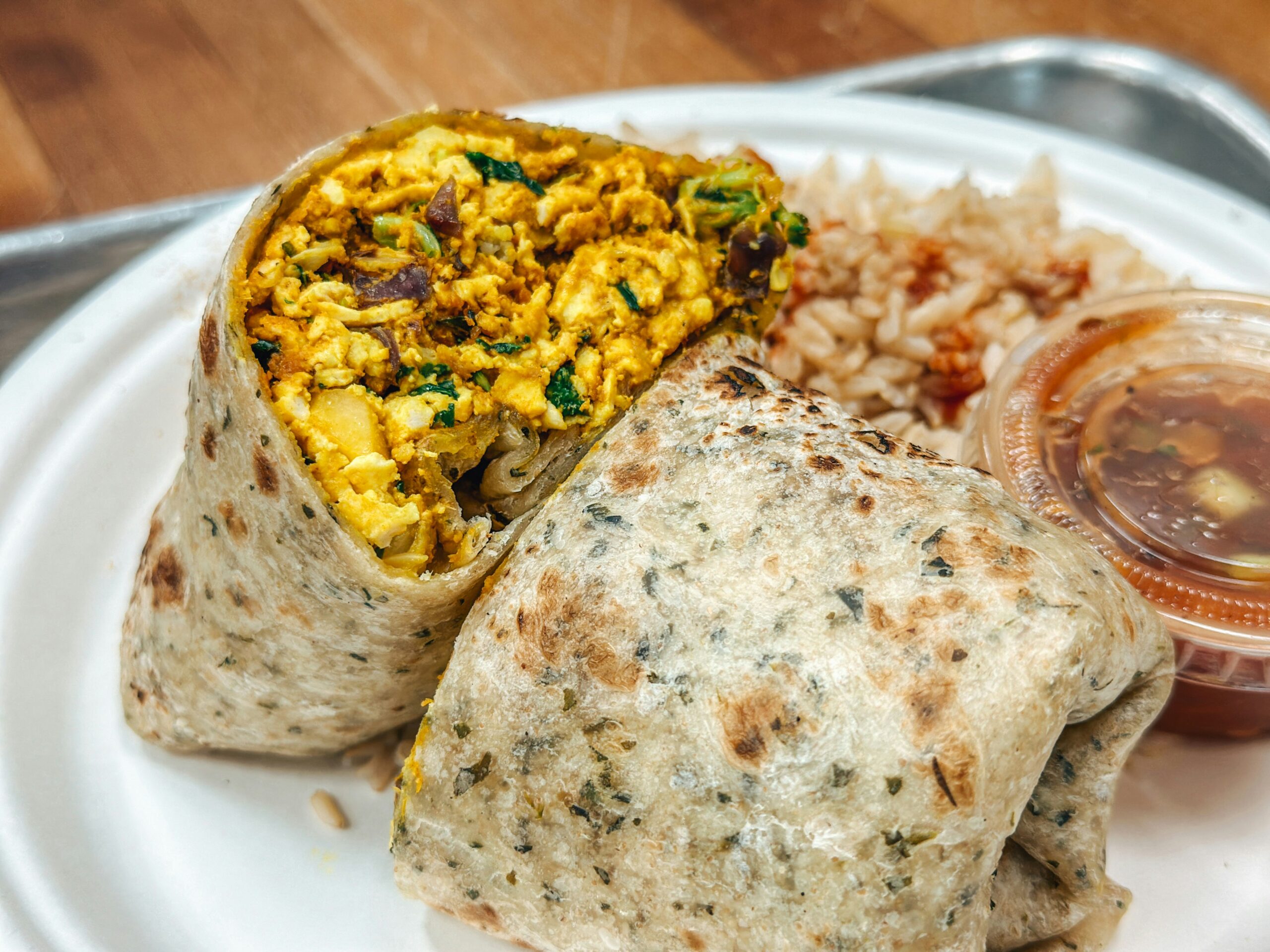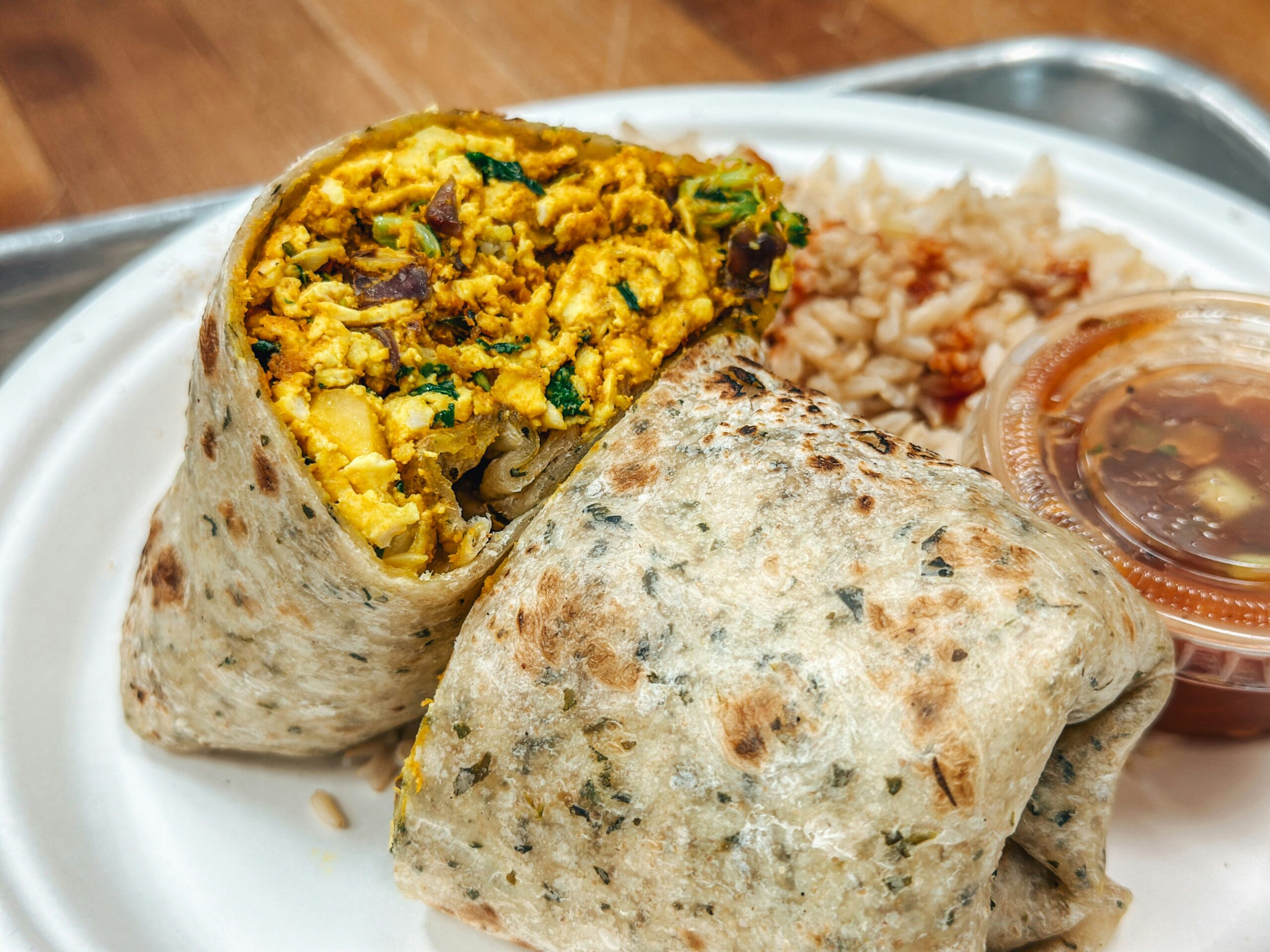The Best Fluffy Pancakes recipe you will fall in love with. Full of tips and tricks to help you make the best pancakes.

What are Breakfast Burritos?
Breakfast burritos are substantial, flavorful food items typically enjoyed during the morning hours. Originating from Mexican and Southwestern cuisine, these portable meals have transcended cultural boundaries to become widely accepted and popularized, particularly in the United States. The core of a breakfast burrito is a warm flour tortilla that is wrapped around a combination of essential ingredients that commonly include scrambled eggs, cheese, beans, meats such as bacon or sausage, and various vegetables. This combination makes breakfast burritos not only convenient but also nutritionally balanced, appealing to a diverse range of palates.
The cultural significance of breakfast burritos is profound, especially in areas known for their vibrant Mexican culture. They encapsulate the idea of a hearty meal that provides sustenance for the day ahead. Over the years, breakfast burritos have evolved, accommodating an array of dietary preferences—from vegetarian and vegan options to gluten-free and low-carb alternatives. This adaptability has solidified their status as a beloved breakfast choice suitable for various lifestyles and taste preferences.
Healthy Ingredients for Breakfast Burritos
Crafting a nutritious breakfast burrito begins with selecting high-quality ingredients that provide essential macros, including proteins, healthy fats, and carbohydrates. One of the primary protein sources for these burritos can be eggs, which are an excellent choice due to their high protein content and versatility. Whole eggs can be scrambled or cooked into an omelet, while egg whites can offer a lower-calorie alternative for those monitoring their intake. For those preferring leaner options, turkey sausage or grilled chicken can be used, contributing additional protein without excess fat.
Vegetarian and vegan options are also abundant, with plant-based proteins such as black beans, lentils, and tofu offering a hearty and nutritious foundation. These alternatives provide essential amino acids, fiber, and various vitamins, enriching the meal while catering to diverse dietary preferences. Incorporating beans not only boosts protein content but also adds beneficial fiber, aiding digestion and promoting a feeling of fullness.
The choice of tortilla is another critical component in preparing healthy breakfast burritos. Opting for whole grain tortillas can significantly increase the dish’s fiber content, which is essential for digestive health. Alternatively, low-carb tortillas are an excellent choice for those aiming to reduce carbohydrate intake without sacrificing the delicious burrito experience. These tortillas are often made from almond flour or coconut flour, providing a unique flavor while maintaining a healthy profile.
Additionally, adding a variety of colorful vegetables can enhance both the nutrition and flavor of breakfast burritos. Ingredients such as bell peppers, spinach, onions, and tomatoes are rich in vitamins and antioxidants, providing not only health benefits but also vibrant color and crunch. Finally, incorporating spices like cumin, paprika, or fresh herbs can enhance flavor without adding extra calories. When selecting ingredients for healthy breakfast burritos, choosing fresh, organic produce where possible can further optimize the overall healthiness of the meal.
Understanding the Macros: Protein, Carbs, and Fats
Macronutrients, commonly referred to as macros, are essential compounds that provide the body with energy and support various physiological functions. They are classified into three primary categories: proteins, carbohydrates, and fats. Understanding the balance of these macronutrients is crucial for maintaining a healthy diet and achieving specific fitness goals, while incorporating breakfast burritos into your meals offers a convenient and versatile option.
Protein is vital for building and repairing tissues, making it a crucial component for individuals aiming for muscle gain or maintaining overall body health. A well-balanced breakfast burrito can provide approximately 20-30 grams of protein per serving when using sources like eggs, lean meats, or plant-based alternatives like beans or tofu. This amount sufficiently supports muscle synthesis and can aid in weight management, as protein tends to promote satiety.
Carbohydrates serve as the body’s primary energy source and come in various forms, including simple and complex carbs. Incorporating whole grains such as quinoa, brown rice, or whole wheat tortillas into your breakfast burrito can provide necessary energy while also supplying fiber that aids digestion. Depending on your dietary goals, you may opt for a higher carbohydrate intake for energy during strenuous workouts or reduce carbs for weight loss efforts.
Fats are often misunderstood, yet they play a crucial role in hormone production and nutrient absorption. Healthy fats, such as those found in avocados, nuts, and cheese, contribute to the flavor and texture of a breakfast burrito without compromising its nutritional benefits. Moderation is essential; typically, a balance of macronutrients would recommend fats making up about 20-35% of your total caloric intake.
To customize a breakfast burrito that meets your unique dietary objectives, calculate your ideal macronutrient ratios based on your energy needs and fitness goals. Tailoring these proportions will help ensure you enjoy a nutritious and satisfying meal that supports your overall health.
Creating Your Own Healthy Breakfast Burrito Recipe
Crafting a nutritious breakfast burrito is a rewarding endeavor that allows for personalization while adhering to healthy macro guidelines. To start, you will need a range of wholesome ingredients, focusing on protein, healthy fats, and complex carbohydrates. Begin by selecting a base for your burrito; whole wheat tortillas or spinach wraps provide a great foundation rich in dietary fiber.
Next, choose your protein source. Options such as scrambled eggs, egg whites, or plant-based proteins like tofu or black beans not only enhance the nutritional content but also contribute to a satisfying meal. For added texture and flavor, consider incorporating diced vegetables such as bell peppers, onions, or mushrooms, which provide essential vitamins and minerals.
To include healthy fats, avocado slices or a sprinkle of feta cheese can elevate the flavor profile while delivering beneficial nutrients. Additionally, fresh herbs and spices such as cilantro, cumin, or chili powder can be added to increase taste without adding extra calories.
When assembling your burrito, layer your ingredients evenly, beginning with the protein, followed by vegetables and toppings. Aim for balance in your filling to ensure each bite is flavorful and nutritious. Roll the burrito tightly, folding the ends to prevent any ingredients from escaping. This step is crucial to avoid spills and ensure that your burrito holds together during consumption.
Meal prepping is an effective strategy for enjoying breakfast burritos throughout the week. Once assembled, you can wrap them individually in foil or plastic wrap and store them in the refrigerator for up to five days. For longer storage, freezing is a viable option; simply wrap tightly and keep in a freezer-safe bag. When ready to eat, reheat in the microwave for a quick and convenient breakfast option.
Ultimately, the key to a successful healthy breakfast burrito lies in experimentation. Don’t hesitate to swap ingredients based on your preferences while ensuring each component contributes positively to your overall health. Enjoy the process of developing a recipe that resonates with your taste buds and fits within your macro goals.






